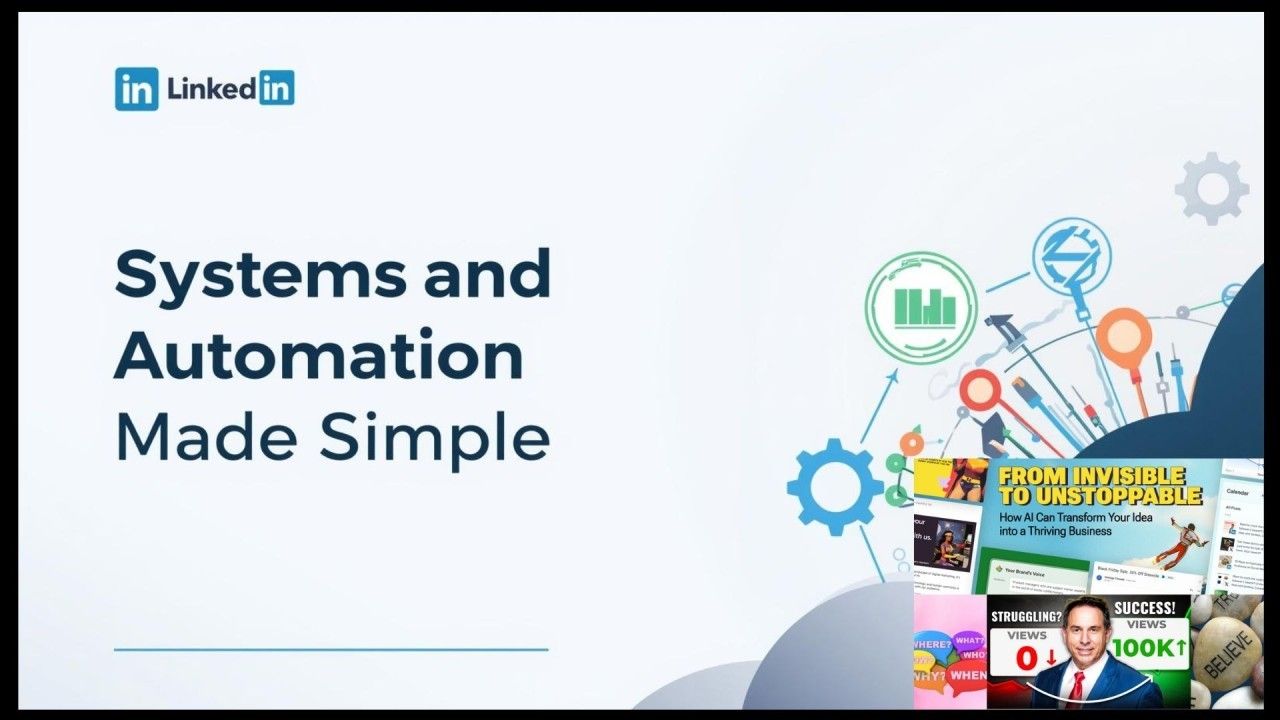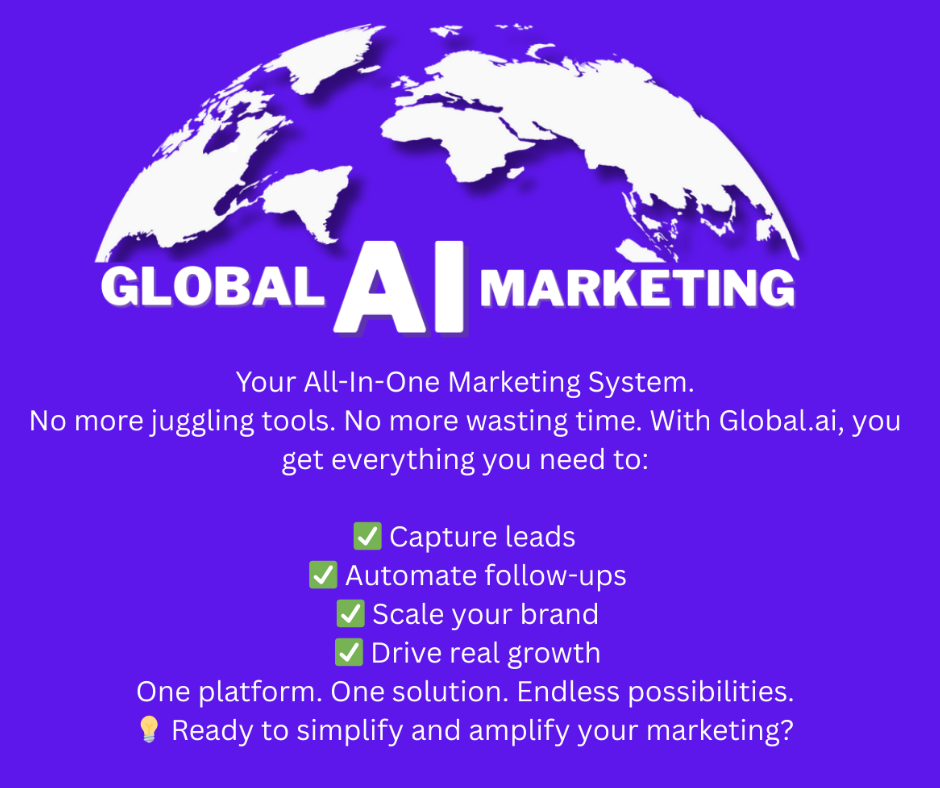The Importance of Systems for Small Businesses

In the fast-paced and competitive world of small business, the key to success often lies in the efficiency and organization of operations. While large companies have the resources to invest heavily in sophisticated systems, small businesses can equally benefit from implementing well-thought-out processes and tools. By starting with the end in mind and setting up robust systems from the outset, small businesses can ensure sustainable growth, improved customer satisfaction, and streamlined operations. This blog explores the critical importance of systems for small businesses, highlighting essential tools such as Customer Relationship Management (CRM), marketing, website management, email newsletters, billing, and equipment management.
The Importance of Systems for Small Businesses
1. Starting with the End in Mind
Stephen Covey’s principle of "beginning with the end in mind" is a powerful concept for small businesses. Envisioning the future state of your business helps to create a clear roadmap and ensures that every action taken aligns with long-term goals. This mindset is crucial when establishing systems, as it promotes proactive planning and helps avoid the pitfalls of reactive management. By defining what success looks like, businesses can implement systems that are scalable, adaptable, and aligned with their growth objectives.
2. Customer Relationship Management (CRM)
A CRM system is indispensable for managing interactions with current and potential customers. It allows businesses to track leads, manage customer information, and streamline communication. For small businesses, a CRM system can transform how customer relationships are handled by providing a centralized database of customer information, enabling personalized communication, and improving customer service.
Benefits of a CRM system:
- Enhanced customer experience through personalized interactions.
- Improved sales processes with lead tracking and management.
- Data-driven decision making with detailed analytics and reporting.
Popular CRM tools like Salesforce, HubSpot, and Zoho CRM offer scalable solutions that grow with your business, ensuring that your customer management processes remain efficient and effective.
3. Marketing Systems
Marketing is the lifeblood of any business, and having a solid system in place is crucial for driving growth. Marketing systems encompass everything from social media management to email marketing and content creation. By automating and organizing marketing efforts, small businesses can ensure consistent brand messaging and engage effectively with their target audience.
Key components of marketing systems:
- Social Media Management: Tools like Hootsuite and Buffer help schedule posts, track engagement, and analyze performance across various platforms.
- Email Marketing: Platforms like Mailchimp and Constant Contact allow businesses to create, send, and track email campaigns, fostering stronger customer relationships and higher conversion rates.
- Content Management: Systems like WordPress and HubSpot CMS enable businesses to create and manage website content efficiently, ensuring a professional online presence.
4. Website Management
A website is often the first point of contact between a business and its potential customers. A well-organized website management system ensures that the site is always up-to-date, functional, and optimized for search engines. This includes everything from regular content updates to technical maintenance and performance tracking.
Benefits of a robust website management system:
- Improved user experience with fast loading times and intuitive navigation.
- Higher search engine rankings through consistent SEO practices.
- Regular updates and security measures to protect against cyber threats.
Platforms like WordPress, Squarespace, and Wix offer user-friendly website management tools that allow even non-technical users to maintain a professional and effective online presence.
5. Email Newsletters
Email newsletters are a powerful tool for maintaining customer engagement and driving repeat business. An email newsletter system helps businesses create, distribute, and track newsletters efficiently. This system should integrate with your CRM to personalize content and enhance customer relationships.
Advantages of email newsletters:
- Direct communication with customers, providing valuable updates and promotions.
- Increased brand loyalty through regular, meaningful content.
- Measurable impact with analytics on open rates, click-through rates, and conversions.
Tools like Mailchimp, AWeber, and Sendinblue offer comprehensive email newsletter solutions, making it easy to design attractive emails and track their performance.
6. Billing and Invoicing
Efficient billing and invoicing systems are essential for maintaining healthy cash flow and ensuring that payments are received promptly. These systems automate the invoicing process, reduce errors, and save time, allowing business owners to focus on growth rather than administrative tasks.
Features of effective billing systems:
- Automated invoicing and payment reminders.
- Integration with accounting software for seamless financial management.
- Secure payment processing to protect customer data.
Solutions like QuickBooks, FreshBooks, and Xero offer comprehensive billing and invoicing features tailored to the needs of small businesses.
7. Equipment Management
For businesses that rely on physical equipment, having a system in place to manage these assets is crucial. Equipment management systems help track the usage, maintenance, and depreciation of equipment, ensuring that all assets are utilized efficiently and remain in good working condition.
Benefits of equipment management systems:
- Prolonged equipment lifespan through regular maintenance and tracking.
- Reduced downtime with proactive identification of potential issues.
- Better financial planning with detailed asset reports.
Tools like Asset Panda, UpKeep, and EZOfficeInventory provide robust solutions for managing business equipment, helping to maximize the return on investment for these critical assets.
Conclusion
For small businesses aiming to grow and compete effectively, implementing robust systems is not just a luxury but a necessity. By starting with the end in mind and investing in essential tools like CRM, marketing systems, website management, email newsletters, billing, and equipment management, small businesses can streamline operations, enhance customer satisfaction, and drive sustainable growth. These systems provide the foundation for a well-organized, efficient, and scalable business, ensuring long-term success in an increasingly competitive market.




